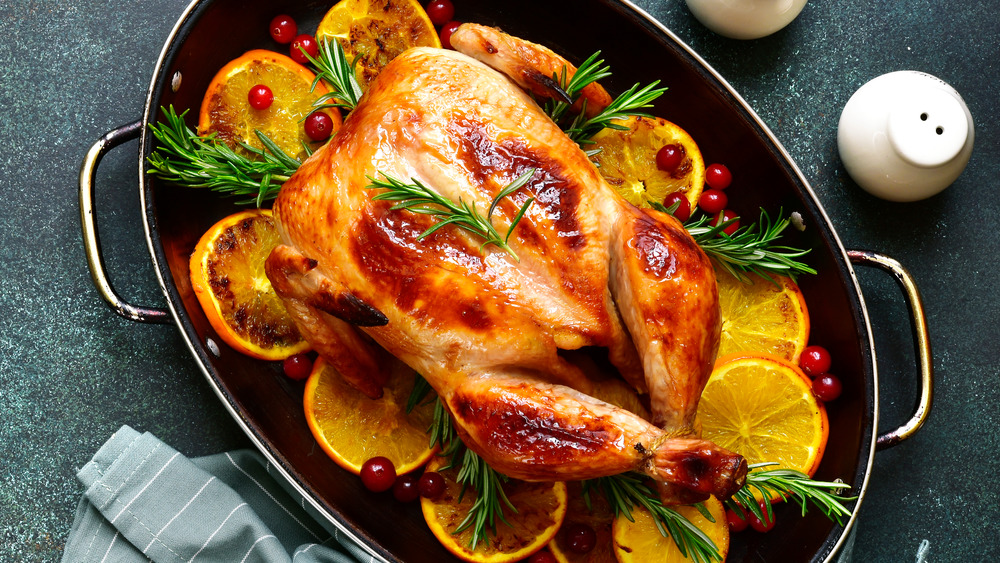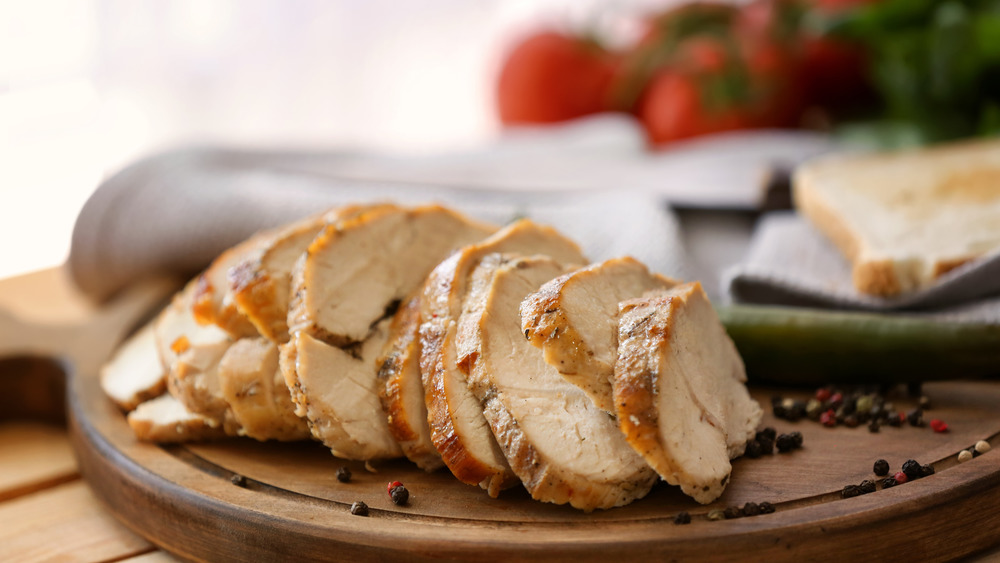When You Overbrine Meat, This Is What Happens
You've probably heard chefs on cooking shows talk about the art of brining your meat and how good it can be for the end result of your dish. Whether you're looking to do a dry brine or a wet brine, it's important to know what it is and how exactly it can affect whatever it is you are cooking.
Let's take a trip back in time: According to Cookshack, brining is not a cooking technique that is new to this age — it was actually an old process used for food preservation before refrigerators were a thing. In order to properly preserve the meat, people would leave it submerged in vats of salty water for long stretches of time. In essence, you're giving your meat a saline bath in order to help it cook better.
Cookshack notes that if you are looking for a better browning effect on your meat, sweeteners like sugar, molasses, or honey will do the trick. Brining your meat is said to add an incredible amount of moisture and increase its flavor profile, according to Food52.
Why you shouldn't overbrine your meat
While brining your meat can be incredibly beneficial in terms of taste and texture, overbrining it could end poorly. Cookshack explains that most meats contain some level of salt water already and, through the brining process, absorb even more of it. You're probably thinking that it's not a bad thing to infuse a bit more salt into something, but too much can definitely be a bad thing. Taste of Home notes that if you leave your meat brining for longer than you should, it can get really salty. Not only that, but the excess salt can cause the protein to break down and the meat to become mushy. The same report states that when the meat becomes mushy, there's no salvaging it.
So, what meats can you brine, and for how long? You can brine almost any lean meat because it lacks the marbling that fattier meats have, which helps them maintain moisture. Meats that can benefit from brining are chicken breast, a whole chicken, pork chops, pork tenderloin, shrimp, cornish game hens, turkey breast, and a whole turkey (via Cookshack and Taste of Home). Food52 details that brining should roughly take about one hour per pound (but feel free to research a bit before making the jump) and that the basic salt-to-water ratio is normally one cup of salt for every gallon of water.

